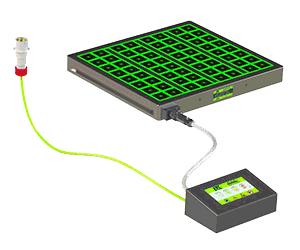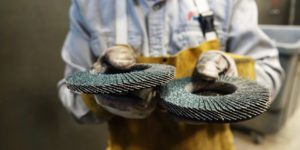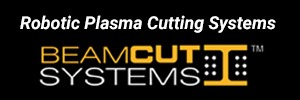Press Brakes, Panel Benders
These machines form predetermined, simple to complex bends of sheet metal and plate material by clamping the workpiece between a matching punch and die. Press brakes can bend thin gauge sheet metal up to very thick plate, while panel benders are used to bend only gauge sheet metal. Press brakes typically cost less than panel benders, which usually employ some level of automation and produce many more parts per hour.
Trilogy Machinery’s Processes and People Ensure Your Success

Stocked with metal fabrication machines ranging from entry level to custom designed, and full parts and service departments, Trilogy Machinery collaborates with customers to determine the best solutions for their applications.
Stocked with metal fabrication machines ranging from entry level to custom designed, and full parts and service departments, Trilogy Machinery collaborates with customers to determine the best solutions for their applications.
The most innovative and updated features to today’s metal forming and fabricating machinery, additive manufacturing equipment, software, controllers and accessories result in efficiencies — both in production and cost savings.
Innovative technologies and updated features to press brakes assist shops in doing more in a challenging labor environment.
Cobot-powered press brakes provide a cost-effective way to overcome the ongoing labor crisis.
AMADA’s sheet metal fabrication equipment assists end users in generating more product by utilizing their existing workforces.
THOR F integrates plasma and oxyfuel cutting with an optional beveling system, and an optional tube and profile lathe. It also combines plate cutting with edge preparation and numerous mechanical machining operations, including milling, drilling, tapping, countersinking, marking, etc.
LVD Co. adds the Easy-Cell 80/25 to its line of robotic bending cells. The product combines an Easy-Form 80-ton press brake with a KUKA industrial robot, and is equipped with the Easy-Form Laser for bend accuracy.
Scotchman Industries has redesigned its PressPro Series of 5 hydraulic press models to provide customers with the flexibility to move the machines more easily.












![AMADA AMERICA, INC, AMADA AMERICA, INC., AMADA AMERICA, AMADA, Jason Hillenbrand, Joe Amico, EVS Metal, Michael Weiss, Weistec Engineering, advanced metalworking solutions, lasers, turret punch presses, press brakes, sheet metal fabrication equipment, turret presses, punching, punch laser technology, punch laser, punching machines, auto-tool changing press brakes, EVS Metal, HG 1003, Weistec Engineering, AMADA [VPSS]3i software, metal fabrication industry](https://www.fabricatingandmetalworking.com/wp-content/uploads/2022/10/Weistec_BREVIS_1212_AJ_Doors_Open1-300x150.jpg)











